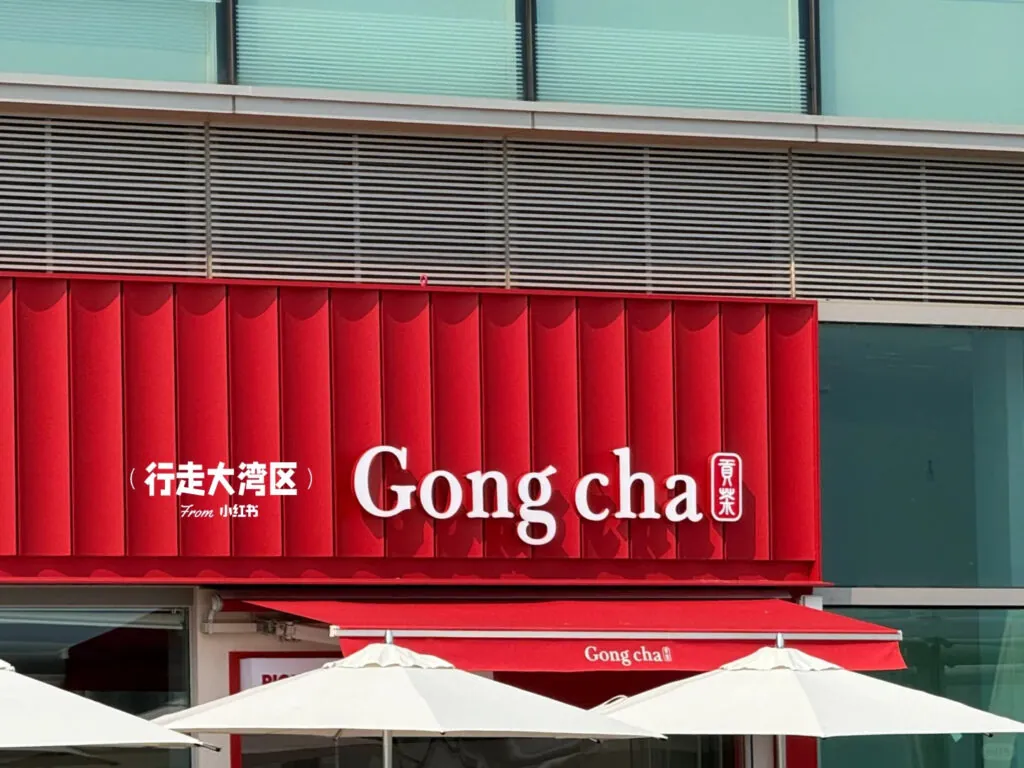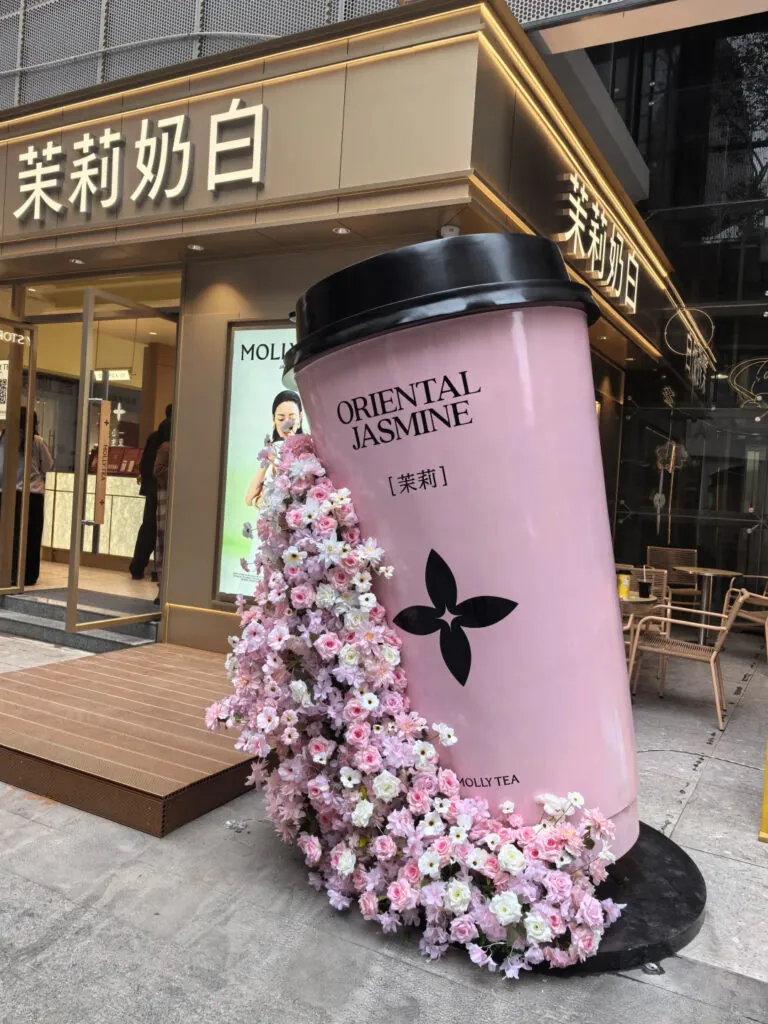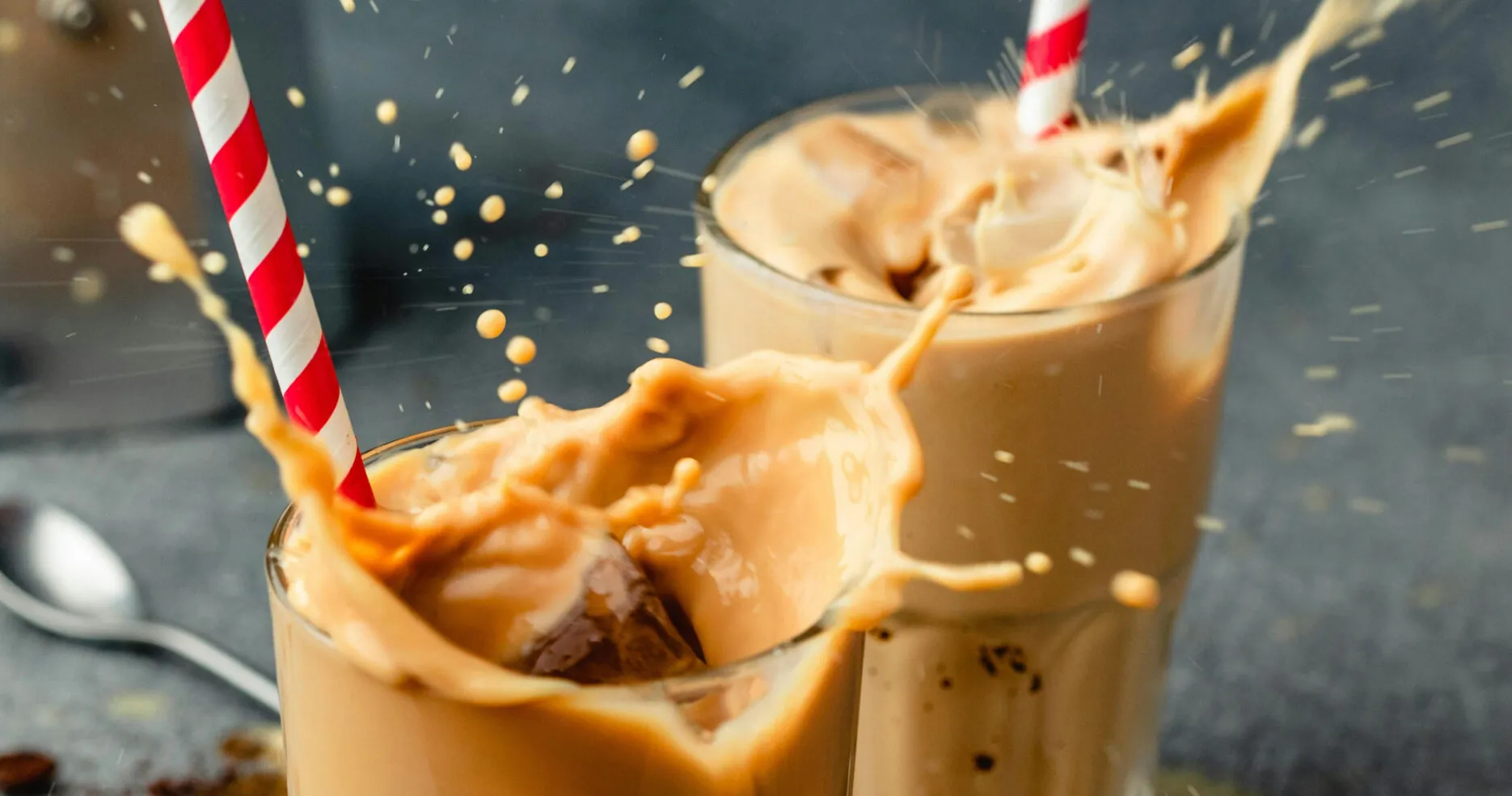Once the poster children of the China milk tea boom, brands like The Alley (鹿角巷), Gong Cha (贡茶), and Shuyi Grass Jelly (书亦烧仙草) are now being memorialised on social media as relics of a sugar-coated past. This week, the Weibo hashtag #Milk tea brands that were once viral but now no one drinks# (#曾经爆火现在几乎没人喝的奶茶#) climbed to no. 23 on the platform’s hot search list, drawing millions of nostalgic – and sometimes scathing – comments about how quickly China’s tea market has changed.
- #曾经爆火现在几乎没人喝的奶茶# (Lit: milk tea brands that were once viral but now no one drinks) hit no. 23 on Weibo’s hot search list.
The post that sparked the trend read like a roll call of fallen stars: The Alley, once famous for its brown sugar tiger stripe milk tea, now survives mostly through supermarket instant mixes. Gong Cha, an early milk tea pioneer, has faded into school-town corners. Shuyi, which at its 2021 peak boasted over 7,000 outlets and investment from Tencent, has reportedly closed thousands.



Behind the online reminiscing lies a story of overexpansion, imitation, and shifting consumer priorities in the China milk tea market. Many of the brands that dominated late-2010s social feeds fell victim to the very virality that made them famous. The Alley’s lack of trademark protection saw more than 7,000 fake stores flood the market, eroding consumer trust. Others stumbled in the post-pandemic pivot toward health. Once-coveted high-sugar formulas like brown sugar pearls and cream-topped teas now feel outdated as young consumers reach instead for low-calorie, fresh-milk options.
That changing taste has fuelled the rise of newcomers such as Chaji (霸王茶姬) and Moli Naibai (茉莉奶白), whose success rests on precisely what the old guard neglected: lighter formulas, clearer positioning, and an identity built around tea itself rather than novelty toppings.


Industry observers on Weibo were quick to turn the nostalgia thread into an autopsy. Common diagnoses included chaotic franchise management, rising prices, weak product R&D, and tone-deaf rebranding. As one viral comment put it, “A bamboo cup can hold milk tea, but not long-term loyalty.”
For China’s once-crowded milk tea sector, the hot search serves as both an obituary and a warning. The era of queuing two hours for a sugar fix is long gone. What remains, as the online discussion suggests, is a more rational, health-driven market, and a reminder that in Chinese tea retail, traffic fades fast, but product strength endures.









